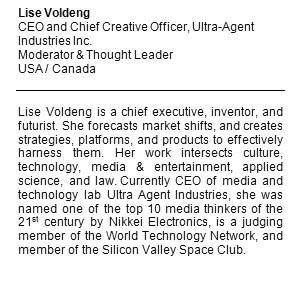
Marketplace Climate Change
The Future Now Show
Books
Articles
Videos
Links
Voting
Members Dialogues
Live Events
Marketplaces
supported by ChatGPT
Please send your comments, ideas, contributions related to the Marketplace Climate Change to
email ???Global HUB Expert
Members:
Climate Change refers to long-term alterations in the Earth's climate, including changes in temperature, precipitation patterns, and the frequency and intensity of extreme weather events. It is primarily driven by natural processes and human activities, particularly since the Industrial Revolution.
the future of Climate ChangeThe future of climate change largely depends on the actions humanity takes over the next few decades. Here’s an overview of potential scenarios, challenges, and opportunities:
Current Trajectory and Impacts
If current trends continue, global temperatures could rise by 2.7°C to 3.2°C above pre-industrial levels by 2100, far exceeding the 1.5°C target set by the Paris Agreement. Key consequences include:More extreme weather events
Heatwaves, hurricanes, droughts, and floods will become more frequent and severe.
Rising sea levels
Projected to rise by 0.6–1.1 meters by 2100, threatening coastal communities and ecosystems.
Ecosystem loss
Coral reefs, Arctic habitats, and other sensitive ecosystems could face irreversible damage.
Food and water insecurity
Changing precipitation patterns and temperature shifts will disrupt agriculture and freshwater availability.
Economic challenges
The costs of climate-related disasters and adaptation will increase, disproportionately affecting low-income communities.Pathways to Mitigation
Limiting global warming to 1.5°C or 2°C requires immediate and sustained efforts. Key actions include:Transition to renewable energy
- Rapid adoption of solar, wind, and geothermal energy.
- Phasing out fossil fuels and decarbonizing industries.
Carbon removal technologies
- Scaling up carbon capture and storage (CCS) solutions.
- Promoting natural solutions like reforestation and soil carbon sequestration.
Energy efficiency and conservation
- Electrifying transportation and improving public transit.
- Retrofitting buildings and industries to be more energy-efficient.
Global cooperation
- Strengthening climate agreements and ensuring compliance.
- Financial support for developing nations to transition and adapt.Adaptation Strategies
While mitigation is critical, adapting to unavoidable changes is equally important:Infrastructure upgrades
Building resilient infrastructure to withstand extreme weather.
Community relocation
Managed retreat from high-risk coastal and flood-prone areas.
Agricultural adaptation
Developing drought-resistant crops and optimizing water use.
Public health systems
Preparing for heat-related illnesses and vector-borne diseases.
Hope for the Future
Despite challenges, there is reason for optimism:Technological innovation
Advances in clean energy, storage, and climate modeling are accelerating.
Global awareness
Public and political momentum for climate action is growing.
Youth movements
Activists like Greta Thunberg and organizations are driving systemic change.
If humanity acts decisively, a more sustainable and resilient future is possible.

The Future Now Show
COP21
Elisabet Sahtouris, Evolution biologist, Futurist, Hawaii, USA
Lise Voldeng, CEO and Chief Creative Officer, Ultra-Agent Industries Inc., USA / Canada
Climate change is arguably the biggest problem of our age – the changes it brings will be immense and potentially catastrophic. This show asks how we might adapt. It looks at the obstacles, from corporate greed to complicit media and the ignorance and apathy they engender and it looks at the structure of our globalised world and where change should occur, from the problem with the nation state to the need for local solutions. Woven in to this is an observation brought in from evolutionary biology that the history of our planet shows repeated cycles of intense, and innovative, competition, then, when this starts to cost too much, cooperation. Is our current globalised, capitalist world the peak of a competitive phase and is global cooperation, on all levels, an essential next evolutionary step?

top
Books
Here are some impactful books about climate change that focus on solutions, education, and the planet's future:Non-Fiction
This Changes Everything: Capitalism vs. The Climate
by Naomi Klein
Explores the intersection of economic systems and climate change, advocating for systemic change.
The Uninhabitable Earth: Life After Warming
by David Wallace-Wells
A stark but essential look at the potential consequences of inaction on climate change.
Drawdown: The Most Comprehensive Plan Ever Proposed to Reverse Global Warming
edited by Paul Hawken
Offers practical solutions to reverse climate change, featuring a global coalition of researchers and experts.
All We Can Save: Truth, Courage, and Solutions for the Climate Crisis
edited by Ayana Elizabeth Johnson and Katharine K. Wilkinson
A collection of essays, poems, and art from women at the forefront of the climate movement.
The Sixth Extinction: An Unnatural History
by Elizabeth Kolbert
Chronicles the past and ongoing mass extinction driven by human activity.Fiction
Flight Behavior
by Barbara Kingsolver
A beautifully written novel addressing climate change through the lens of human relationships and nature.
The Overstory
by Richard Powers
A sweeping tale about trees and the people who interact with them, illuminating the interconnectedness of life.
Weather
by Jenny Offill
A novel blending humor and gravity as it explores personal and global anxieties about the environment.Children’s and Young Adult
The Lorax
by Dr. Seuss
A timeless children’s book emphasizing the importance of environmental conservation.
No One Is Too Small to Make a Difference
by Greta Thunberg
A collection of speeches by the young climate activist, inspiring readers of all ages to take action.Additional Resources
Field Notes from a Catastrophe
by Elizabeth Kolbert
Investigates climate change through on-the-ground reporting.
How to Avoid a Climate Disaster
by Bill Gates
Outlines practical steps and technologies to reduce carbon emissions.
Here’s a list of influential books on climate change authored by some of the best scientists and researchers in the field:
Top Climate Change Books by Scientists
Earth: The Sequel
by Fred Krupp and Miriam Horn
Written by environmental experts from the Environmental Defense Fund, this book explores innovative solutions to climate change being developed by scientists and entrepreneurs.
The Climate Book
by Greta Thunberg (contributions from scientists worldwide)
While Thunberg spearheaded this book, it features essays and insights from over 100 leading scientists, climate experts, and activists.
The Discovery of Global Warming
by Spencer R. Weart
- A thorough historical account of the science of climate change, written by a physicist and science historian.
Storms of My Grandchildren
by James Hansen
Written by the NASA climate scientist who first sounded the alarm about global warming, this book is both a call to action and a personal account of Hansen's fight to bring attention to climate issues.
Our Final Warning: Six Degrees of Climate Emergency
by Mark Lynas
Based on scientific research, this book explores how each degree of global temperature rise will impact life on Earth.
Climate Change and the Health of Nations
by Anthony J. McMichael
A groundbreaking book by a leading epidemiologist, linking climate change to global public health issues.
Field Notes from a Catastrophe: Man, Nature, and Climate Change
by Elizabeth Kolbert
A journalist's deeply researched exploration of climate change impacts, informed by leading scientists' insights.
Global Warming: Understanding the Forecast
by David Archer
A clear and accessible explanation of the science behind climate change, authored by a geophysical scientist.
The Atlas of Climate Change
by Kirstin Dow and Thomas E. Downing
Co-authored by experts in environmental geography, this visual guide highlights the science and impacts of climate change globally.
The Sixth Extinction: An Unnatural History
by Elizabeth Kolbert
Though not a scientist, Kolbert’s Pulitzer Prize-winning book is informed by extensive collaborations with leading biologists and climate scientists.
top
Articles
Climate Change Success Stories....
Circular EconomySpirituality
Animals
Nature
Creativity
Education
Artificial Intelligence & Climate Change
Sustainable Furniture
Rewilding
Ecovillages
Digital Twins and Climate Change
Weather Modification
Coastal Management
Green Architecture
Climate-Smart Agriculture
Plant migration
Sustainable Water Future
Eco-friendly Tourism
Soil
Recycling
Grassroots Responses to Climate Change
Energy Storage
AI & Climate Change
Algae
Synthetic Fuel
Artificial Intelligence & Robots
Carbon Capture Companies
Regenerative Resources
Tarun Bharat Sangh
Global Forest Watch
Climate Neutral Group
Energy Islands – Denmark
Bioeconomy
Cellular Farming
Reforestation Projects
What if Climate Change was Made Illegal?
Celtic Reptile & Amphibian
The Second Solution: Riparian Restoration
Nemonte Nenquimo
geoFootprint
District Heating and Cooling in Greater Copenhagen
Biorock
The GELCLAD project
Farming for Conservation – The Burren Programme
ITER – Unlimited Energy
Sustainable Rubber by Seow Lye Lok
Sahara Forest Project
TECNARO – The Biopolymer Company
Impossible Foods
TeamTrees
Freiburg Green City
Solar Foods
Swedish Forests
Nutri2Cycle
Cooking on Biogas
by Gardenerd
The Green Office MovementAletsch Glacier: View from Eggishorn
by ETH Zurich
Disposable eco-friendly packaging
New climate insight revealed
Unexpected predictions from the military and insurance industry on
the effects of climate change
by Saul Boyle, Tom Bosschaert, Mark Ratcliff, Except Integrated Sustainability B.V.
Forest seeks village to grow up in
The Ocean Economy will eclipse $3 trillion by 2030
By CaspianReport
Three financial firms could change the direction of the climate crisis – and few people have any idea
by Jan Fichtner, University of Amsterdam, Eelke Heemskerk, University of Amsterdam, and Johannes Petry, University of Warwick
Natura 2000
Climate disaster viewed from different angles
By Konstantin Müller, CEO, EduMedia AG, Basel/Switzerland
Bjorn Lomborg Declares “False Alarm” on Climate Hysteria
With Hoover Institution
These reports collectively highlight the urgency of addressing climate change, offering actionable insights and policy recommendations. Leading institutions around the world publish critical reports on climate change that shape policy, scientific understanding, and global action. Here are some of the most recognized ones:
Intergovernmental Panel on Climate Change (IPCC)Comprehensive Assessment Reports (AR6, AR5, etc.), Special Reports (e.g., "Global Warming of 1.5°C").
Focus
- Scientific consensus on climate change causes, impacts, and mitigation.
- Scenarios for limiting global warming to 1.5°C and 2°C.
Key Message
Immediate, drastic emissions reductions are critical to avoid catastrophic climate impacts.United Nations Environment Programme (UNEP)
Emissions Gap Report.
Focus
- Discrepancy between current emissions and levels required to meet Paris Agreement goals.
- Insights into sectors like energy, transportation, and agriculture.
Key Message
Global emissions are not on track; urgent action is required across sectors.World Meteorological Organization (WMO)
State of the Global Climate, Global Annual to Decadal Climate Update.
Focus
- Current trends in global temperatures, extreme weather, and sea level rise.
- Short-term projections for climatic shifts.
Key Message
The planet is entering uncharted territory with rising temperatures and extreme weather events.Country-by-country analysis of emissions pledges vs. actual progress.
Focus
- Evaluates how close nations are to achieving Paris Agreement targets.
- Identifies policy gaps and progress.
Key Message
Most countries are far from meeting their climate commitments.International Energy Agency (IEA)
World Energy Outlook, Net Zero by 2050 Roadmap.
Focus
- Transitioning energy systems to reduce carbon emissions.
- Renewable energy and technological innovation.
Key Message
A sustainable energy future is achievable with coordinated investment and policies.World Resources Institute (WRI)
Global Climate Action Progress Reports
Focus
- National climate plans and their implementation.
- Solutions for sustainable agriculture, energy, and urban systems.
Key Message
Collaboration is essential for scaling climate solutions.
top
VideosClimate Change / Food
Kirsten van Dam, Arjen Kamphuis, Hardy F. Schloer and Lise Voldeng
Redefining Indigenous Roles in Climate Action
with Nkwi Flores & Reto Brosi
‘Knowledge keeps the fires burning’:
how ancient Indigenous wisdom can transform our battle against climate change
by Nina Lansbury, The University of Queensland; Bradley J. Moggridge, University of Technology Sydney; Geoff Evans, The University of Queensland; Lillian Ireland, The University of Queensland, and Tom Munro-Harrison, Indigenous Knowledge
top
LinksInnovative Companies in Climate Solutions
Renewable Energy
Ørsted
A global leader in offshore wind energy and renewable solutions.
Fredericia, Denmark
Tesla, Inc.
Known for revolutionizing electric vehicles and renewable energy solutions, including solar panels and battery storage systems.
Austin, Texas, United States
NextEra Energy
The world’s largest producer of wind and solar energy, pioneering renewable investments.
Florida, United StatesCarbon Capture and Storage
Climeworks
Specializes in direct air capture technology to remove CO2 from the atmosphere.
Zurich, Switzerland
Carbon Engineering
Focuses on large-scale carbon capture and utilization technologies.
Vancouver, B.C., CanadaSustainable Products
Beyond Meat & Impossible Foods
Innovating plant-based alternatives to traditional meat, reducing greenhouse gas emissions associated with livestock.
Nairobi, Kenya
Patagonia
A pioneer in sustainable apparel and environmental activism, advocating for climate action.
Ventura, California, United StatesEnergy Efficiency
Enphase Energy
Designs and manufactures solar microinverters and energy management technologies.
Eschborn, Germany
Siemens Gamesa Renewable Energy
A leader in wind turbine manufacturing and services.
Zamudio, Vizcaya, SpainAdvocacy Organizations
Greenpeace International
A global environmental organization focused on campaigning for policy and societal changes to combat climate change.
Amsterdam, Netherlands
Environmental Defense Fund (EDF)
Partners with governments, businesses, and communities to develop innovative climate solutions.
New York, United States
350.org
A global movement advocating for fossil fuel divestment and renewable energy adoption.
Boston, MA, USA
Ceres
Works with investors and companies to drive sustainable business practices and climate resilience.
Boston, MA, USAGlobal and Intergovernmental Institutes
Intergovernmental Panel on Climate Change (IPCC)
The UN body assessing the science of climate change. Publishes influential reports on global warming and mitigation strategies.
Geneva, Switzerland
World Resources Institute (WRI)
Focuses on sustainable development, offering data and research to advance climate policies and business practices.
Washington, D.C., USA
International Institute for Environment and Development (IIED)
Focuses on global climate adaptation, especially for low-income countries.
London, UK
United Nations Environment Programme (UNEP)
Leads global environmental efforts, including climate action.
Nairobi, KenyaNational and Regional Research Institutes
Potsdam Institute for Climate Impact Research (PIK)
A leading European center for climate science, modeling the impacts of climate change and proposing solutions.
Potsdam, Germany
National Center for Atmospheric Research (NCAR)
Focuses on atmospheric and Earth system science, including climate modeling.
Boulder, Colorado, USA
UK Met Office Hadley Centre
Specializes in climate modeling and the prediction of climate change impacts.
Exeter, UK
The Energy and Resources Institute (TERI)
An India-based institute conducting research on energy, environment, and sustainable development.
New Delhi, India
Commonwealth Scientific and Industrial Research Organisation (CSIRO)
Australia’s national science agency, working on climate adaptation and mitigation strategies.
Canberra, Australia
National Renewable Energy Laboratory (NREL)
A U.S. Department of Energy lab advancing renewable energy and energy efficiency technologies.
Denver, Colorado, United StatesAcademic Institutions
Grantham Research Institute on Climate Change and the Environment
Based at the London School of Economics, it focuses on economics and policy research related to climate change.
London, UK
Tyndall Centre for Climate Change Research
A UK-based academic network tackling climate challenges through interdisciplinary research.
Norwich, UK
Woods Hole Research Center (WHRC)
Focuses on climate dynamics, particularly forest and carbon systems.
Falmouth, Massachusetts, USA
Scripps Institution of Oceanography
A leader in oceanic and atmospheric research related to climate change.
La Jolla, California, USA
Yale Program on Climate Change Communication
Researches how to effectively communicate climate science to the public.
New Haven, Connecticut, USASpecialized Research Centers
CICERO – Center for International Climate Research
A Norwegian institute focused on climate science, policy, and societal impacts.
Oslo, Norway
International Centre for Climate Change and Development (ICCCAD)
Specializes in adaptation strategies for developing nations, particularly in Bangladesh.
Dhaka, Bangladesh
Carbon Tracker Initiative
A financial think tank analyzing the economic impact of the energy transition and stranded assets.
London, UK
Institute for Climate and Society (ICS)
A Brazil-based institute dedicated to integrating climate change into societal planning.
Rio de Janeiro, Brazil
The Climate Reality Project
Founded by Al Gore, it focuses on climate change education and global grassroots activism.Leading Labs and Observatories
Mauna Loa Observatory
A primary location for measuring atmospheric CO2 levels.
Hawaii, USA
NOAA Geophysical Fluid Dynamics Laboratory (GFDL)
Models Earth’s climate and studies its dynamics.
Princeton, New Jersey, USA
top
Voting
top
Members Dialogues
top

Live Events
Copyright © 2002-2025, Felix Bopp. All rights reserved.












